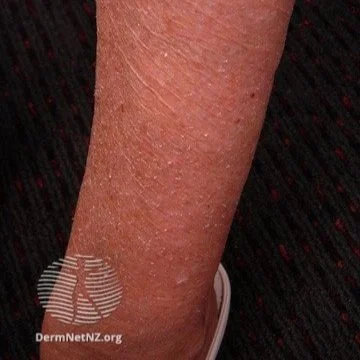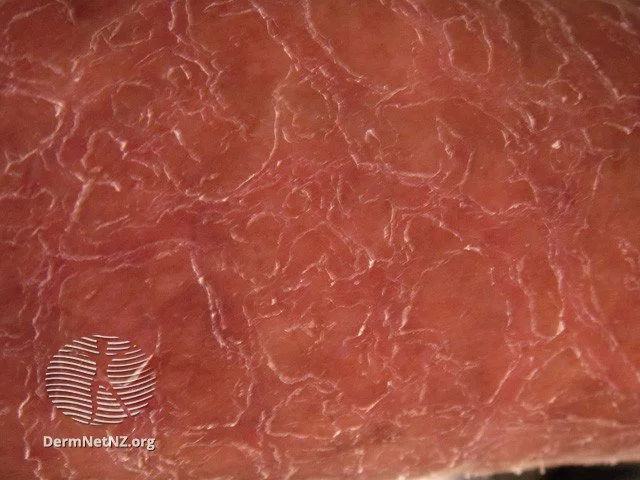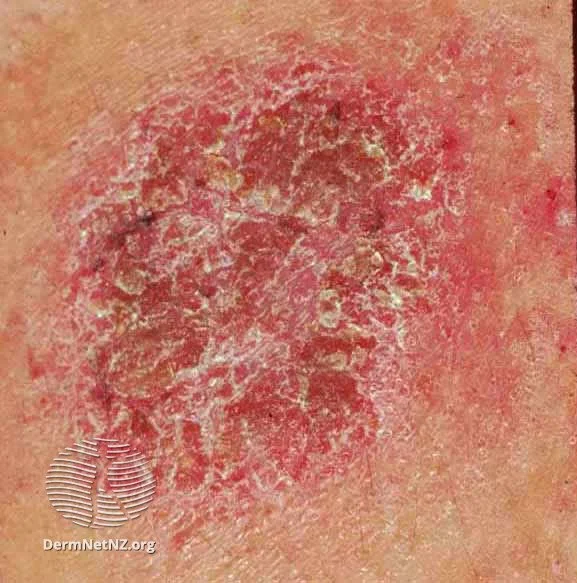
Dry Skin (Xeroderma, Xerosis)
An example of dry skin, with flaking and peeling of the upper layer of the epidermis.
Credit: DermNet NZ
What is dry skin?
Dry skin is characterized by a lack of moisture in its outer layer, making it feel parched or tight. This can lead to small to large fissures or cracks in the skin, which may itch or occasionally cause a burning sensation.
What causes dry skin?
Dry skin can arise from various factors and can affect individuals differently. Some common causes include:
Aging, as the oil glands become less active over time
Genetic differences that influence the skin's water and fat content
Environmental factors such as low humidity in winters, arid regions, or prolonged exposure to heaters
Over-cleansing, using excessively hot water during baths or showers
Harsh soaps, detergents, and solvents
Application of skin-drying agents like alcohol or chlorine
Continuous rubbing from certain types of clothing
Medical conditions like thyroid disease, kidney ailments, menopause, or malnutrition
Medications, including topical and oral retinoids or EGF inhibitors
What are the symptoms of dry skin?
The symptoms of dry skin vary in severity. Commonly, dry skin appears rough, scaly, and has a lackluster appearance. In more severe cases, the skin may become cracked, reddened, or irritated. While any part of the body can be affected, areas frequently exposed to the environment are more susceptible.
How do I treat dry skin?
Moisturizers serve as the primary treatment for dry skin. The choice of moisturizer often depends on factors such as the severity of dryness, skin type, personal preferences, and budget constraints. Numerous moisturizers are available, ranging from over-the-counter products to prescription formulations. Some may be more suitable for certain skin types than others. In cases of intense dryness, topical keratolytics like urea and ammonium lactate can be beneficial. For extreme inflammation, topical steroids might be considered.
How do I prevent dry skin?
Prevention strategies for dry skin include:
Limiting bath or shower duration and frequency
Opting for lukewarm water instead of hot water during showers or baths
Using humidifiers in dry climates or during winters
Replacing harsh soaps with gentler, moisturizing cleansing products
Applying a moisturizer promptly after bathing or showering
Severe dry skin can lead to a cracked and fissured appearance.
Credit: DermNet NZ
In cases of longstanding dry skin the skin barrier breakdown can lead to eczema (dermatitis).
Credit: DermNet NZ



